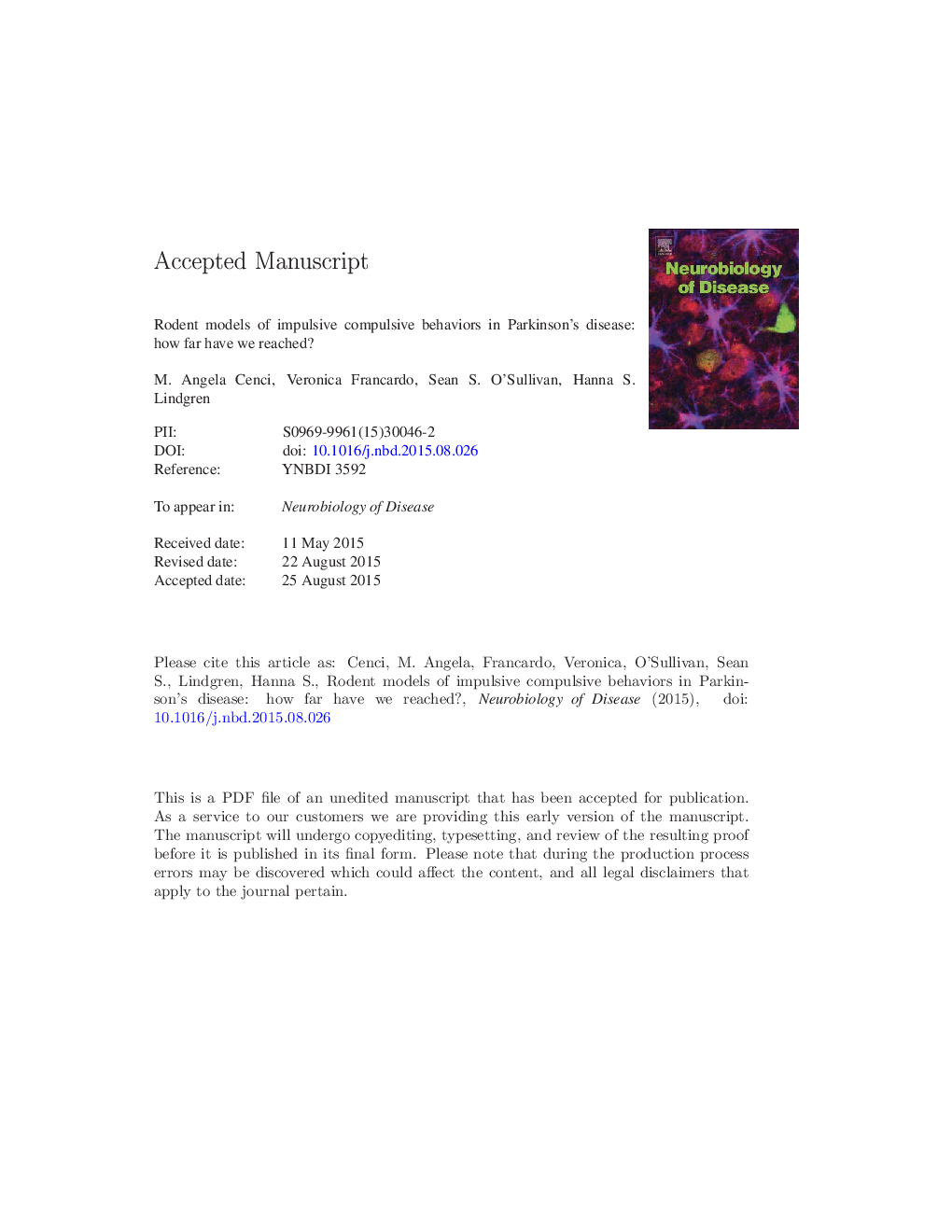| Article ID | Journal | Published Year | Pages | File Type |
|---|---|---|---|---|
| 6021581 | Neurobiology of Disease | 2015 | 40 Pages |
Abstract
There is increasing awareness that the medications used to treat the motor symptoms of Parkinson's disease (PD) contribute to the development of behavioral addictions, which have been clinically defined as impulsive-compulsive behaviors (ICBs). These features include pathological gambling, compulsive sexual behavior, binge eating, compulsive shopping, excessive hobbyism or punding, and the excessive use of dopaminergic medication. ICBs frequently have devastating effects on the social and occupational function of the affected individuals as well as their families. Although ICBs are an important clinical problem in PD, the number of studies in which these symptoms have been modeled in rodents is still limited. This may depend on uncertainties regarding, on one hand, the pathophysiology of these behaviors and, on the other hand, the experimental paradigms with which similar features can be induced in rodents. To help compose these uncertainties, we will here review the characteristics of ICBs in PD patients and then describe behavioral methods to approximate them in rodents. We will discuss both the challenges and the possibilities of applying these methods to animals with PD-like lesions, and review the recent progress made to this end. We will finally highlight important questions deserving further investigation. Rodent models having both face validity and construct validity to parkinsonian ICBs will be essential to further pathophysiological and therapeutic studies into this important area.
Keywords
IGT6-OHDARGTCPPCPAICBAAV6-HydroxydopamineICSSSNCVTADRTDDSl-DOPAAdeno-associated viral vectorsParkinson's diseaseconditioned place preferencesubstantia nigra pars compactaPositron emission tomographyIntracranial self-stimulationDopamine replacement therapyDopamineDopamine dysregulation syndromeCognitionNon-motor symptomsAnimal modelsconditioned place aversionventral tegmental areaNeurotoxinIowa Gambling TaskParkinsonPET
Related Topics
Life Sciences
Neuroscience
Neurology
Authors
M. Angela Cenci, Veronica Francardo, Sean S. O'Sullivan, Hanna S. Lindgren,
